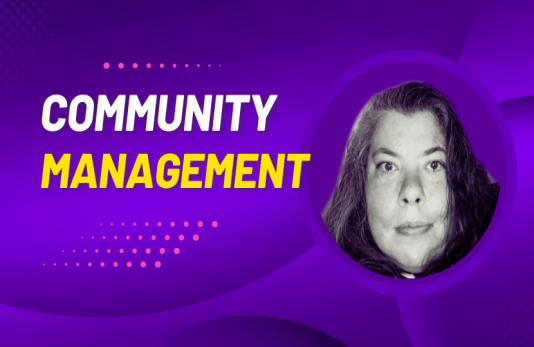Hire a keyword research expert to develop a strong keyword strategy and access top keyword research services in 2025 that increase your online visibility. Experts at Legiit provide comprehensive support to ensure you capture high-converting keywords across social media and other platforms for lasting success.
Understanding the Value of Professional Keyword Research
The Importance of Comprehensive Keyword Analysis for SEO Success
A solid SEO strategy needs thorough keyword analysis. A keyword research expert digs into reliable keyword research to find insights that bring measurable ROI. They use a data-driven strategy to spot search demand and adjust content to fit it.
- High-intent keywords for conversions: Targeting commercial-intent keywords helps with conversion optimization by focusing on high-value terms. These keywords show that buyers are ready to act.
- High-volume keywords for reach: Spotting popular and trending keyword volume helps brands get more visitors and widen their audience.
- Leveraging competitor analysis: Doing competitive keyword analysis gives a clearer view of your competitive verticals. This lets you place your brand better in the market.
Identifying High-Intent, High-Volume Keywords to Drive Conversions
Driving conversions means aiming for both high-intent and high-volume keywords. Here’s how:
- Use keyword research tools like Google Keyword Planner or third-party keyword tools such as SEMrush and Ahrefs. These give useful data on how keywords perform.
- Use a long-tail keyword strategy to reach your audience better by focusing on exact phrases people actually search for.
- Do semantic keyword analysis to sort out search intent categories. This helps you understand what users really want.
Leveraging Competitor Insights to Outrank the Competition
Checking out competitors can boost your SEO game:
- A competitor keyword gap analysis shows where they rank but you don’t. This helps identify demand in your niche.
- Look for underserved keywords these are timely search trends or niche market opportunities that others haven’t tapped yet.
- Use competitive analysis tools like SEMrush or Ahrefs to dig deeper into what works in your sector and tweak your plan accordingly.
In short, working with a skilled keyword research expert gives businesses what they need to make smart SEO moves that bring in traffic and lift conversions through careful study of trends and competition.
Evaluating Expertise: Qualities of an Effective Keyword Researcher
A keyword research expert helps create strong SEO plans. You want to find someone with certain skills:
- Data-driven strategy: They use real data and tools to find the best keywords. This means their choices fit the business goals well.
- Verified expert credentials: Check if they have proof of experience or certificates in SEO keyword research. Verified experts tend to know what they’re doing.
- Effective communication: The best researchers explain their ideas clearly. They turn complicated data into advice anyone can follow.
- Problem-solving ability: Search trends change fast. Good researchers fix problems quickly and adjust their plans.
- Digital marketing expertise: Knowing just keywords is not enough. They also understand other online marketing like PPC and social media.
- SEO specialist skills: They should know on-page SEO, how competitors work, and why people search certain words.
Expert insights often spot things machines miss. Pick people who mix solid data skills with hands-on experience.
Comparing Keyword Research Service Offerings and Pricing Models
Hiring a keyword research expert? You need to get how their services and prices work. This helps you find solutions that can grow with your needs.
| Service Type | Description | Benefits |
| Hourly Keyword Expert | Pay by the hour for tasks or advice | Good for small projects or quick checks; you control the budget. |
| Project-Based Keyword Research |
One price for a set list of deliverables, like a full keyword list.
|
Costs are clear; easy to track what you get.
|
| Service Packages | Groups of services like competitor analysis plus support. |
Saves money over time; covers more ground.
|
Scalable solutions let you start small. Then you can add more when your SEO needs grow without changing providers all the time.
Vetting Top Freelance Keyword Researchers on Platforms like Legiit

Looking for a freelance keyword researcher? It pays off to check carefully so you get good results with easy hiring:
- Review profiles closely: Look at past projects about SEO keyword research and read client feedback about their work.
- Check communication skills early: Quick and clear answers show they’re serious and easy to work with.
- Confirm expertise claims: Ask for certificates or examples that prove their methods use real data, not just generic tips.
- Understand pricing: Know if they charge by hour or by project so you won’t get surprise fees later.
- Focus on client satisfaction: High ratings and repeat clients usually mean reliable freelancers who deliver value.
Platforms like Legiit make hiring smoother by showing verified experts ready to meet your goals while being clear about terms.
Watch out for these points when picking freelance talent. This way, you get a partner who boosts your SEO with focused keyword research know-how.
Developing a Winning Keyword Research Strategy
Aligning Keyword Research with Your Business Objectives
A good keyword strategy starts with knowing your business goals. You need to understand what you want to achieve. That way, you can create keyword portfolios that fit those goals well. Start by finding out who your audience is through solid market research. This helps you learn user intent. When you know why people search, you pick keywords they care about.
Plan your strategy so it can grow with your business. Use data-driven strategy to watch how your keywords perform. Change your approach based on those numbers. Match keywords to specific products, services, or topics to make relevant points of engagement. This pulls in the right kind of traffic.
Mix audience targeting into your keyword research. That way, you build solutions that work for now and later. This match helps improve conversion rates and gives better return on investment.
Uncovering Relevant, Long-Tail Keywords for Organic Growth
Long-tail keywords catch niche searches well. They help organic growth by reaching precise user needs. A long-tail keyword strategy focuses on these detailed phrases more than broad terms.
Here’s how to find good long-tail keywords:
- Look at search intent optimization by checking how users word their queries.
- Use tools that offer keyword suggestions with related long-tail options.
- Pick terms that really match what your audience cares about.
Long-tail keywords usually face less competition but bring higher conversion potential. They target clear, specific needs well. Adding them boosts search visibility and creates stronger bonds with visitors looking for exact answers or fixes.
Understanding user intent behind these searches guides content creation toward real questions users ask online. That way, organic growth happens more steadily over time.
Optimizing Keyword Strategies for Search Engines and Social Media
Keyword plans must change between places like Google and social networks because their rules and users differ. SEO keyword research stays key for website content optimization focus on terms with good search volume and manageable competition.
For social media marketing keywords:
- Do hashtag research that fits each platform’s style.
- Know how networks differ (Instagram uses hashtags more; LinkedIn favors professional words).
- Add popular but relevant hashtags naturally without overdoing it.
Optimize content by mixing SEO basics like meta tags, headings, and internal links with social media copy meant to get shared and talked about.
This two-way approach grows brand presence on many digital fronts and pulls in quality traffic from various spots. Using both classic SEO methods and smart social media moves creates a strong plan suited for digital marketing today and beyond.
Implementing Effective Keyword Research Tactics
Conducting Thorough Competitor and Market Analysis
Keyword competition shows you where your chances lie in the competitive vertical. You can start by digging into competitor keyword analysis. This helps you find what keywords bring traffic to your rivals’ sites. Market research lets you watch search trends. It also helps you catch changes in what people want over time.
Try keyword gap analysis. It points out the keywords your competitors use but you don’t. This gives you ideas on what to aim for next. Competitor research also shows which content strategies work well in your niche. That way, you can tweak your own plan.
Keep an eye on these things often. It helps you adjust fast when the market shifts. This kind of insight forms the base for smart keyword targeting. It lifts both organic reach and paid campaign results.
Utilizing Advanced Keyword Research Tools and Techniques
Use third-party keyword tools like SEMrush, Ahrefs, or Google Keyword Planner for good data on search volume and difficulty. These tools tell you how tough competition is for different keywords in your field.
AI-powered SEO tools speed up this work by looking at big data sets quickly. They also offer predictions based on recent patterns. Mixing old-school tools with AI gives a stronger view of keyword stats and performance metrics.
Doing this regularly helps find keywords with real potential that match what users want. Plus, it makes it easier to keep tabs on how your chosen keywords do compared to rivals.
Integrating Keyword Insights into Content and Advertising Campaigns
Using keyword insights right boosts content optimization and PPC campaigns alike. For organic content, put keywords naturally inside titles, headings, meta descriptions, and text without messing up readability.
For paid search or social media ads, pick ad campaign keywords carefully to get more clicks but keep cost-per-click (CPC) low. Ads that focus on exact terms connect better with what people search for.
Keep testing ad copy while adjusting your keyword list to get better returns from paid campaigns. Matching SEO-driven content plans with paid ads creates a strong marketing mix that shows clear results across platforms.
Measuring the Impact of Keyword Research Services
Tracking Key Performance Indicators (KPIs) for Keyword Research
To see if your keyword research works, you need to track key performance indicators (KPIs). These numbers show how your keywords perform and if they help your business goals.
Here are some important KPIs to watch:
- Keyword performance analysis: Check how your keywords rank and if they get more visible.
- Engagement metrics: Look at clicks, bounce rates, and how long people stay on your page.
- Measurable ROI: Figure out how much money you make from visitors who find you through those keywords.
- Marketing KPIs: See if your keyword strategy helps with brand awareness and good-quality leads.
Look at these performance metrics often. This helps you find which keywords work best. Then, you can make smart changes that improve results.
Analyzing Organic Traffic, Conversions, and Marketing ROI
Organic search traffic tells you if your keyword work brings visitors without paying for ads. Tools like Google Analytics and Google Search Console show details about visitors and what they do.
Focus on these areas:
- Organic search traffic: Count how many visitors come from unpaid search.
- Conversion rate: Track how many visitors buy or sign up after clicking a keyword.
- Lead generation: See how many leads come from these organic visits, and check their quality.
- Revenue growth: Link the rise in organic traffic to real sales when you can.
Looking at these together helps you know if your keyword research is worth it. This way, you see if you're making money, not just getting clicks.
Maintaining Keyword Relevance Through Ongoing Optimization
Keywords change over time. People search differently as trends shift. So keep doing keyword research and watch your results closely.
Here’s what to do:
- Do regular data analysis to spot new trends or shifts in what people search for.
- Change your keyword choices based on what works drop bad ones, use more of the good ones.
- Stay updated on industry news, check what competitors do, and follow SEO forums.
This ongoing work stops your rankings from falling. It keeps people interested in your site for longer. Plus, it helps you keep growing revenue from the start.
Partnering with Legiit for Comprehensive Keyword Research Support
Accessing Vetted Keyword Research Experts with Proven Track Records
Finding a reliable keyword research expert isn’t easy. Legiit makes it simple by linking you to verified experts who show exceptional talent. Every freelance keyword researcher on the platform gets checked carefully. This means you get top talent with proven skills. The hiring process is smooth and clients keep coming back. That shows high retention rate and satisfaction.
Expert Profiles and Reviews
Experts on Legiit put quality first. They offer clear, transparent services that you can trust. Their profiles show how they use data-driven strategy for proven results. They keep communication steady so you always know what’s happening. Reviews from past clients give a good look at each expert’s problem-solving ability and reliability.
Client Testimonials
Clients talk about their satisfaction a lot. They like how experts solve problems fast and clearly. Ongoing reporting is another plus they mention often. This keeps progress visible at every step. Testimonials prove working with these vetted pros improves SEO results for real.
Customizing Keyword Research Strategies to Fit Your Unique Needs
Every business faces its own competition in a vertical. Experts build tailored keyword portfolios just for your niche. These portfolios stay relevant and make an impact. Solutions can scale up as your business grows. Custom SEO plans match your specific marketing goals well.
Consultation and Collaboration
Good communication drives success at Legiit. Regular consultations help teams grow together by mixing keyword insights with wider marketing work. This way, everyone stays on the same page toward shared goals.
Tailored Solutions for Specific Industries
Keyword research must focus on the audience carefully. Experts segment audiences by age, habits, or location for specific industries. They use these details to make campaigns that connect well and boost engagement rates.
Flexible Service Packages
Legiit offers service packages that suit many needs, from small audits to full keyword management programs.
- Basic Audit: Keyword analysis & report (best for small businesses)
- Standard Plan: Portfolio building & monitoring (for growing companies)
- Premium Solution: Full strategy + ongoing consulting (made for enterprises & agencies)
Each package lists what’s included so you know exactly what you get.
Leveraging Legiit's Expertise for Lasting SEO and Marketing Success
Keeping rankings strong takes nonstop keyword research supported by data analysis and reviewing performance metrics. Strategic planning helps adjust methods when needed. Experts watch progress closely and find new chances to improve visibility across search engines.
Building long-term relationships with trusted experts gives access to their knowledge plus helpful resources like advanced tools. These tools support reliable keyword research efforts that grow organic traffic and conversions over time.
FAQs
What is social media keyword research and why is it important?
Social media keyword research identifies terms users use on platforms. It helps create content that matches user intent and trends, increasing engagement and reach.
How does keyword targeting improve SEO and paid search advertising?
Keyword targeting ensures content and ads focus on relevant phrases. This boosts visibility, attracts qualified traffic, and improves conversion rates.
Why is continuous keyword research necessary for sustainable rankings?
Search behavior changes constantly. Continuous keyword research adapts strategies to evolving trends, preventing ranking drops and maintaining organic visibility.
How can search query frequency help in gauging market interest?
High search query frequency shows strong user demand. Tracking it guides marketers to prioritize popular topics and align content with audience needs.
What role does better understanding user intent play in keyword research?
Understanding user intent refines keyword selection. It ensures content addresses actual questions or needs, improving relevance and engagement.
How does granular targeting differ from sophisticated targeting in keyword strategies?
Granular targeting focuses on detailed audience segments by demographics or behavior. Sophisticated targeting combines multiple factors for precise reach across channels.
What benefits does real-time engagement offer through constantly updating feeds?
Real-time engagement keeps audiences connected with fresh content. Constant updates maintain interest and maximize pull on social media platforms.
Why is reliable keyword research critical for maximizing visibility?
Reliable research uses accurate data to select effective keywords. This prevents wasted effort and ensures strong online presence in competitive markets.
How do detailed keyword suggestions support refined internal search?
Detailed suggestions expand the list of potential keywords. They enhance internal site search by matching diverse user queries precisely.
Advanced Keyword Strategy Tips for 2025
- Use negative keywords to filter irrelevant traffic and save ad spend.
- Leverage domain authority by focusing on high-value keywords that match your site's strength.
- Adapt approach based on performance metrics to avoid wasting money on low-performing keywords.
- Fix mistakes quickly by monitoring campaign data regularly. Hire top talent with proven data-driven strategy for expert results.
- Apply user intent understanding to improve content relevance and boost conversions.
- Analyze search behavior patterns for actionable recommendations that align with audience needs.
- Focus on tailored keyword portfolios that fit niche markets perfectly.
- Ensure seamless hiring processes to onboard freelance keyword researchers efficiently with risk-free trial options available.
- Prioritize quality-first approaches in service delivery to ensure long-term growth. Integrate growth across SEO, paid search, and social media through ongoing monitoring of performance metrics.
- Use strategic planning combined with innovative approach for competitive advantage.
- Employ expert matching services to connect with digital marketing specialists skilled in both organic search and paid media strategies.
- Customize ad campaign keywords for better PPC results while supporting SEO campaign planning efforts simultaneously.
- Factor in social platform differences when conducting social network analysis for each channel: Facebook targeting varies from Instagram hashtags or Twitter analytics tactics.
- Segment audiences effectively using demographic and behavioral targeting techniques to unlock hidden keyword opportunities within content marketing strategy.
- Group and prioritize keywords based on relevance, difficulty, and current trends using advanced wildcard searches for broader coverage during topic research sessions.
- Optimize content engagement by aligning keyword trends with evolving search algorithms on multiple social media platforms including YouTube optimization or Pinterest discovery features.
- Manage campaigns through digital marketing metrics tracking tools enabling precise online audience growth measurement across all paid media strategies.
- Encourage user-generated content creation supported by thorough social listening insights that feed into future keyword research process refinement.













 Download
Download